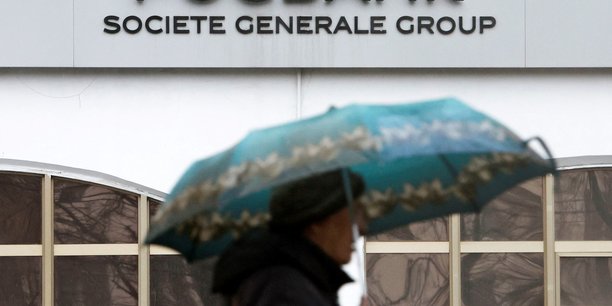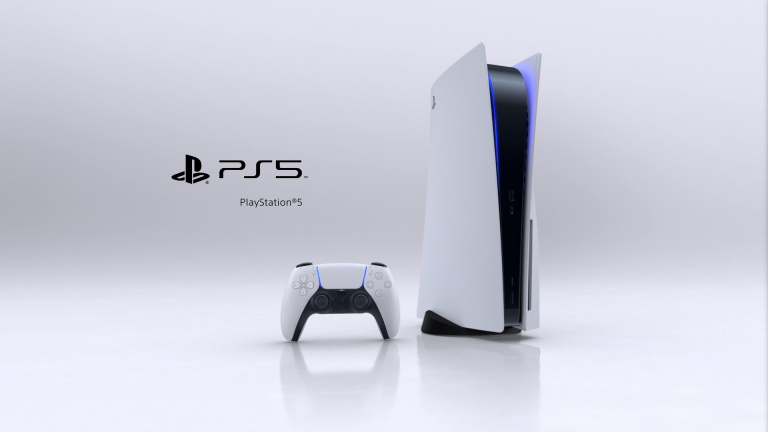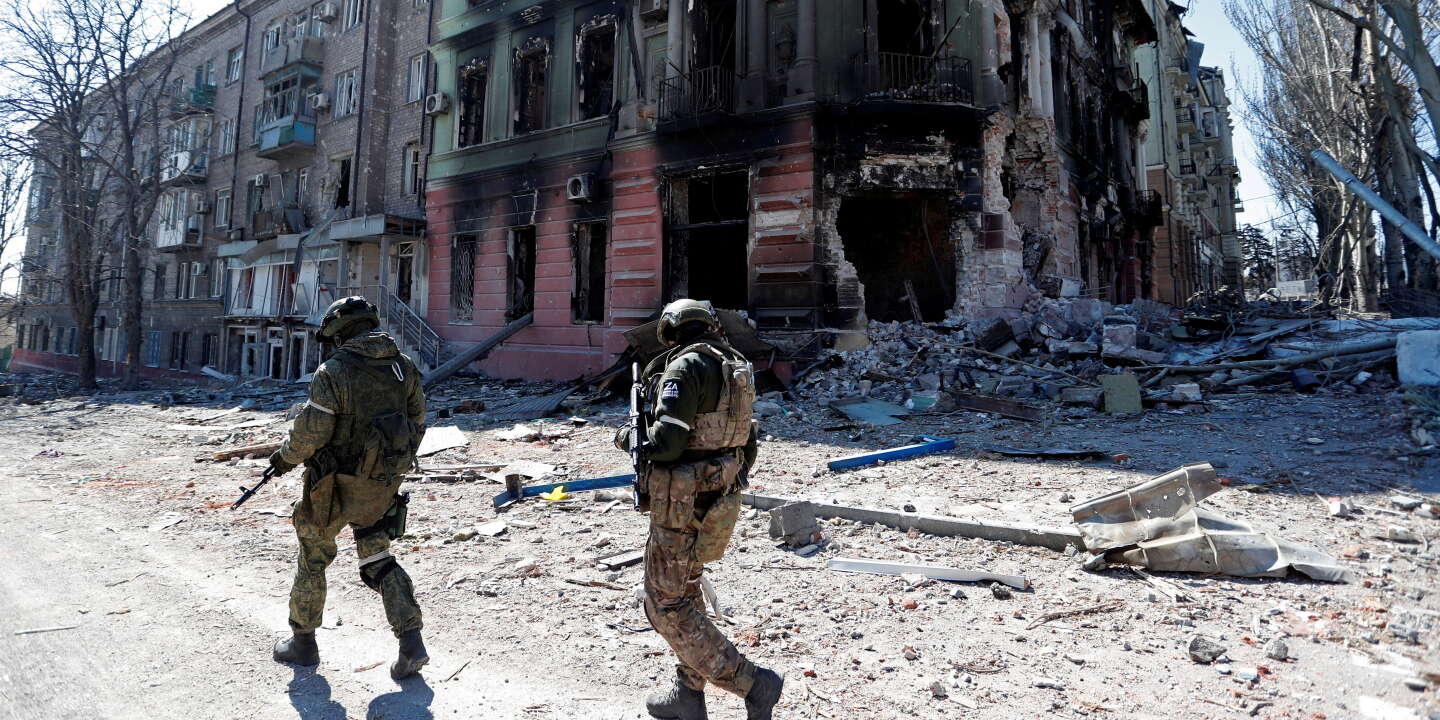
The pressure must have been too great. The massacres in Ukraine, the deployment of the Russian army in the Donbass in view of a major offensive, a crescendo of sanctions against Putin, even Russia’s recent placement in selective default by the S&P rating… Societe Generale has finally decided to draw a line under its Russian banking activities.
In a press release issued this morning, the bank announced an agreement to sell its entire stake in its banking subsidiary Rosbank and its Russian insurance subsidiaries to Interros Capital, the previous shareholder of Rosbank, a subsidiary of Interros, majority shareholder of Norilsk Nickel, the world’s largest nickel producer. .
Former (short-lived) deputy prime minister of Boris Yeltsin, in charge of privatizations, the owner of Interros, Vladimir Potanin, one of the richest men in Russia, is one of his oligarchs still escaping sanctions, both European and American. “This agreement complies with the letter of European and American sanctions”, cites a source from the bank.
An exit option considered from the start
This Societe Generale Agreement is: “the fruit of several weeks of intensive work”, the statement said, suggesting that the French bank had made its strategic decision to leave Russia in the early hours of the war in Ukraine. She had been too the first French bank to communicate on the financial consequences of a possible “expropriation” on 3 March.
Meanwhile, the bank is very reserved in its communication and emphasizes its responsibility towards its employees and customers in Russia. Until, here or there, he aroused criticism of his reticence. But the choice was made. All that was left was to set it to music and find an “acceptable” buyer.
Closing this transaction would “Intervening in the coming weeks”. It is the first European bank with a high exposure to Russia to announce its withdrawal from the Russian market. UniCredit bank talks about exit scenarios.
Other French banks, as BNP Paribas or Crédit Agricole also announced the cessation of their activities, which were, however, limited to the activities of investment banking and financing, an easier to manage scope. Nothing to do with Rosbank, which has about 12,000 employees and two million active customers in Russia.
An impact of EUR 726 million on the solvency ratio
According to the bank, the impact of this sale of its Russian activities should be approximately 20 basis points on the CET1 capital ratio (“hard” equity), or EUR 726 million. This is therefore significantly less than the impact of 50 basis points (1.8 billion euros), advanced on 3 March.
This mainly concerns the impairment of the net book value of the assets sold, which “widespread” offset by the deconsolidation of the bank’s local exposure to Russia (EUR 15.4 billion in “default” exposure) and the payment of an amount not specified by the acquirer, but which includes the repayment of a subordinated debt granted by Société Générale to Rosbank (500 million euros).
The impairment on the Russian assets amounts to approximately 2 billion euros, or a net book value reduced to almost zero. There will also be a negative exceptional item of 1.1 billion euros, with no impact on the solvency ratio, linked “to the normative entry in the cost account of the conversion reserve”. Clearly an exceptional loss related to the depreciation of the ruble. In total, the bill comes to 3.1 billion euros.
A decision that the markets are all waiting for
These charges and exceptional items will be recorded in the accounts for the first half of the year, closed on June 30. The markets have already largely taken this into account: the Société Générale share has lost almost a quarter of its market capitalization since the outbreak of hostilities in Ukraine, namely 7.7 billion euros, which evaporated on the stock exchange during that period.
On Monday morning, the stock market announcement was greeted with a nearly 7% rebound in the stock to EUR 23.3… but far from certain EUR 48 price targets set by some analysts the day after the 2021 results were released. “The stock market values clear decisions more than half measures in the face of a conflict that promises to drag on forever”notes a manager.
“Signing an agreement for the sale of its Russian subsidiary Rosbank is an important step in the right direction. However, this transaction has yet to be approved in the coming weeks and our concerns about the downgrades of the consensus and the risk of French elections remain short-lived.”said Flora Bocahut, financial analyst at Jefferies.
The bank also ensured that the full distribution policy for the 2021 financial year was confirmed, namely a dividend of 1.65 euros per share (ie a return of 7% at the current price) and a share buy-back program of €915 million.
An East-oriented strategy questioned
Leaving Russia is a tough decision for Société Generale, which had been rearranged in recent years its international retail banking strategy around three countries, Russia, Czech Republic and Romania (after withdrawal from Poland and the Balkans). And Russia represents (has) by far its most important international asset. These three markets were subsequently hailed by the bank as: “engines of growth”accounting for about 20% of the turnover of the entire retail banking division of the group, with some 6 million customers (2 million in each of the three countries).
Despite the sanctions imposed on Russia in 2014, after the annexation of Crimea, Societe Generale has always shown its serenity towards its subsidiary by emphasizing its management “autonomous” and standards “strict” in terms of compliance.
The Russian adventure for the French bank started in 2006 when the Russian government wanted to attract international investors. It was also the time when the Russian central bank decided to clean up a banking sector that was as corrupt as it was fragmented. Mission largely accomplished.
Ten years of effort
Despite the country’s bad reputation, Societe Generale, then headed by Daniel Bouton, decided to rise to the challenge by first taking 10% of Rosbank and eventually acquiring 99.98% of the bank from Vladimir Potanin, all for an estimated total investment of $4 billion. The very high margins generated in Russia have apparently wiped out the internal hesitation.
The French bank knew the country well, it is true, and was one of the first Western banks to open a branch in Moscow in the 1970s. And it knew how to manage unruly mores and customs by imposing an iron disciple in its subsidiary and by negotiating the twists and turns of Russian politics as best it can, such as the 2013 arrest (and dismissal) of Rosbank’s boss, who has since been cleared of all charges. In total, it took ten years for subsidiary Rosbank to become profitable and become a development axis of the group.
Unfortunately, the war in Ukraine has destroyed all these hopes. and the market “the most promising of the coming years” has become a nightmare, shattering the bank’s surge in the stock market and the renewed confidence of investors in the strategy of the group led by Frédéric Oudéa.
This also brings us back to the delicate issue of reputation risk and its costs associated with a bank’s investments. It’s now easy to ask the question of the bank’s presence in Russia, but this theme has never really been addressed, at least not officially, by stakeholders or financial analysts (or even ESG) before.
The bank even risks a double penalty: it is still very much present in the Czech Republic and in Romania, while the Eastern European countries will be most affected by the war in Ukraine and the series of sanctions falling on Russia. The worst is always to be expected.



